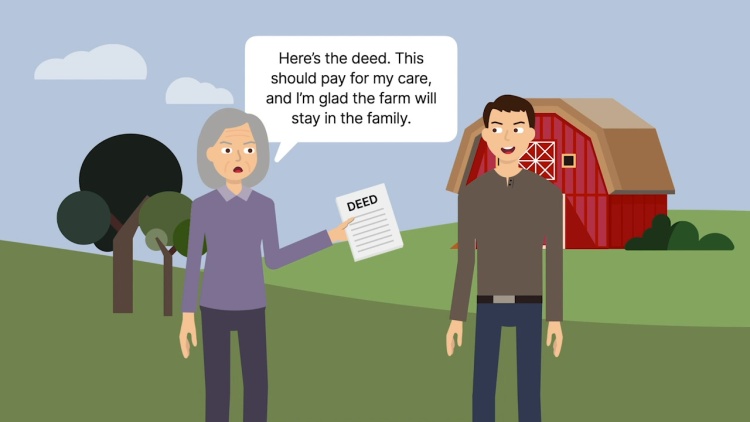Fulp v. Gilliland
Indiana Supreme Court
998 N.E.2d 204 (2013)

- Written by Eric Cervone, LLM
Facts
Harold Fulp Sr. owned a farm with his wife, Ruth. Harold Sr. and Ruth raised three kids on the farm—Harold Jr. (defendant), Nancy (plaintiff), and Terry. After Harold died, Ruth placed the farm into a revocable trust. Ruth was the trust’s primary beneficiary, trustee, and settlor. Upon Ruth’s death, the trust would become irrevocable, and the successor trustee would distribute any remaining assets to the children. The trust provided that Ruth could revoke the trust at any time for any reason. The trust also provided that the trust was for Ruth’s use and benefit. Additionally, the trust provided that Ruth had a duty to (1) administer the trust solely in the interest of the beneficiaries, (2) treat multiple beneficiaries impartially, and (3) preserve the trust property. Ruth later decided to sell the farm to Harold Jr. at a price that was half of the farm’s value. Nancy objected to the sale, arguing that Ruth had a fiduciary duty to the other children as remainder beneficiaries, and that the sale violated the duty. The trial court agreed with Nancy. Harold Jr. appealed. The appeals court held that if Ruth did have a fiduciary duty to her children as trustee, that duty would conflict with her rights to the farm. The appeals court instead concluded that Ruth sold the farm as the settlor of the trust; thus, according to the court, the purchase agreement was effectively an amendment of the trust. Nancy appealed, asking the court to decide whether the trustee of a revocable trust owes a duty to the settlor alone or also to the remainder beneficiaries.
Rule of Law
Issue
Holding and Reasoning (Rush, J.)
What to do next…
Here's why 907,000 law students have relied on our case briefs:
- Written by law professors and practitioners, not other law students. 47,100 briefs, keyed to 996 casebooks. Top-notch customer support.
- The right amount of information, includes the facts, issues, rule of law, holding and reasoning, and any concurrences and dissents.
- Access in your classes, works on your mobile and tablet. Massive library of related video lessons and high quality multiple-choice questions.
- Easy to use, uniform format for every case brief. Written in plain English, not in legalese. Our briefs summarize and simplify; they don’t just repeat the court’s language.





